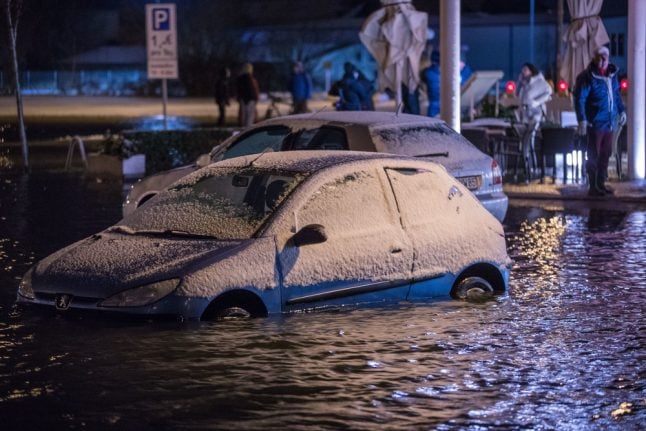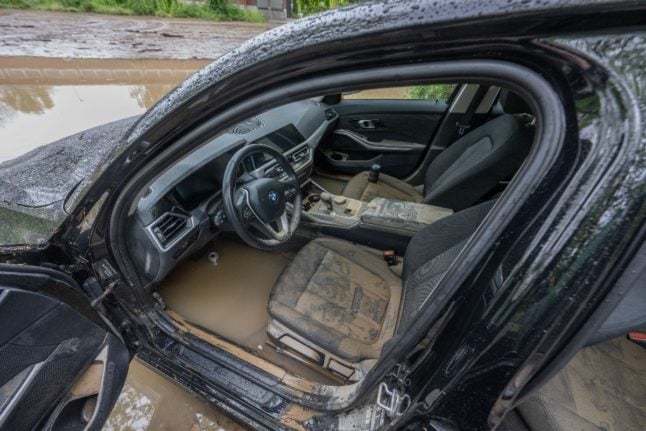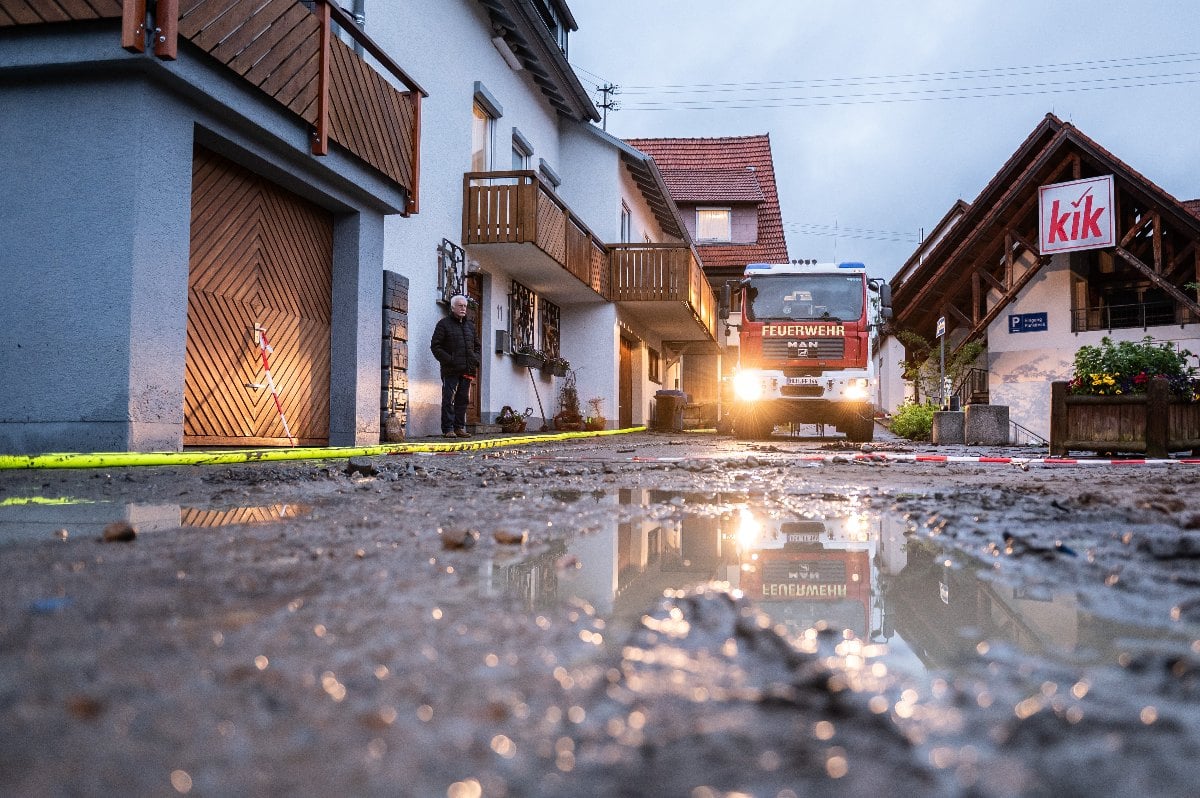The northern states of Schleswig-Holstein and Mecklenburg-Western Pomerania saw the worst flooding in eleven years. But by Thursday morning, the water levels had already started dropping along the coast.
Cities most affected by the flooding were Kiel, Lübeck, Rostock, Warnemünde, Flensburg, Eckernförde, Wismar and Usedom. On the island of Rügen, some dikes had flooded. Houses on the beach were left swamped with water, and boats were pushed onto jetties.
IN PICS: the aftermath of the Baltic Sea flood
By late Wednesday evening, many locations along the Baltic Sea had water levels of 150cm to 170cm higher than usual.
 Firefighters in Wismar. Photo: DPA.
Firefighters in Wismar. Photo: DPA.
Though water levels had decreased by Thursday morning, some sections of the coast were still suffering under levels more than a metre higher than usual.
By 4.45am, the Federal Maritime Agency (BSH) reported that water levels in Wismar and Flensburg were standing at 1.47 metres, in Greifswald at 1.41 metres and in Kiel-Holtenau at 1.42 metres higher than normal.
“The dangers of the storm surge have, however, been allayed,” said Jürgen Holfert of the BSH.
 High waves on the Baltic Sea near Warnemünde. Photo: DPA.
High waves on the Baltic Sea near Warnemünde. Photo: DPA.
A police spokeswoman said that the amount of damage caused could not yet be determined by Thursday morning.
In Kiel, many streets had to be blocked off for traffic, while in Lübeck it was not possible for pedestrians to access the Old City area. The Lübeck fire brigade said they had been inundated with emergency calls.
“Many people had not sufficiently secured their houses and we had to protect things with sand bags,” said Matthias Schäfer from the fire services.
On the island of Usedom, stairways, snack stands and part of a beach promenade were washed away, according to a spokesman for the town, Achim Froitzheim.
“This was not a birthday party. This was worse than expected,” Froitzheim said.
In Rostock, many houses along the Warnow river had been vulnerable and one street was blocked off for several kilometres due to high water levels.
 A car drives through flooding in Hamburg. Photo: DPA.
A car drives through flooding in Hamburg. Photo: DPA.
In Stralsund, the aquarium Ozeaneum – Mecklenburg-Western Pomerania’s most visited museum – had to be secured with sheet piling due to the partially flooded harbour there.
The storm also caused some traffic accidents due to the snow in Mecklenburg-Western Pomerania. Between 6pm and 10pm, there were 22 accidents due to wet and icy roadways.
And such slippery incidents were also reported down south in Bavaria and Baden-Württemberg. In Upper Bavaria, police said there were three times the usual number of incidents.
 Waves from the North Sea hit a ferry dock in Schleswig-Holstein. Photo: DPA.
Waves from the North Sea hit a ferry dock in Schleswig-Holstein. Photo: DPA.
Axel is now set to make its way from Scandinavia over the Baltic Sea to Belarus. But German weather service DWD said residents of east and south Germany can still expect to experience strong snow and sleet on Thursday. In mountainous areas, the temperatures could fall to -20C.
By Friday across Germany, frosty temperatures are predicted, as low as -7C in some places.




 Please whitelist us to continue reading.
Please whitelist us to continue reading.
Member comments